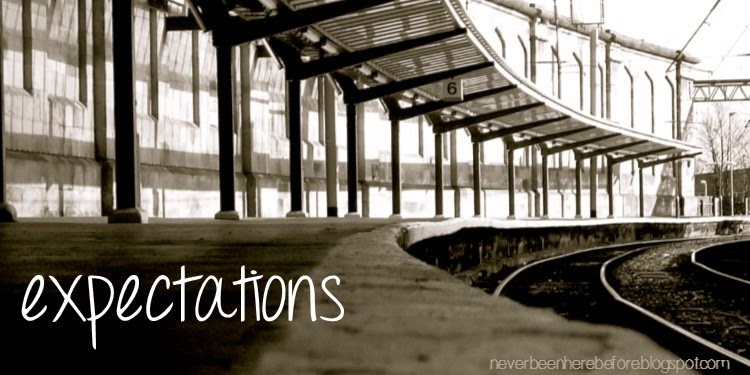feeling the disappointment [living life without expectations]
One of the reasons I see this as being so important, though
it can be painful to experience, is that I believe we can learn a great deal
about ourselves if we choose to listen to what we are feeling. This is not
about wallowing (I’ve been a pull-yourself-up-by-your-bootstraps kind of girl
my whole life, so ain’t nobody got time for that) but about exploring.
Exploring the desires, wants, hurts and needs that are all wrapped up into
expectations.
I remember sitting on a couch, facing my counselor, a week
after a big breakthrough for me. She was asking the typical follow-up
questions, and I was feeling fairly content. The breakthrough powerful and
good; I’d finally connected two dots that desperately needed to be connected in
my life and I was rejoicing that I had now named something crucial in my life. Not
only was a happy about it, but I also knew it would affect me for the rest of
my life.
She continued to push and I finally asked her what she was
getting at. She said to me, “I think you are moving on too quickly. Have you
grieved?”
“Grieved what?”
“The loss.”
That term had been floating around my house that semester…
one of my roommates was in the counseling program, so it made sense that I
would hear it. But without context, I didn’t know what it really meant.
When an expectation or desire isn’t met, there is, at the
very least, disappointment. At the most, there is severe and deep hurt. For
years, when I was angry or frustrated and didn’t understand why, once I identified
why, it was a huge victory. In short, I used
to think that simply naming something was enough to help me move on.
It isn’t.
With a disappointment, there is a loss. Clearly, that looks
different depending on the situation. But a loss is still there. And here is
where I come back to my “boot-straps” comment. To grieve something, other than
the death of a loved one, always felt self-indulgent and selfish to me. But I
know better now. It’s part of the feeling process.
But we don’t live in a culture that honors grieving the
loss. We live in a culture that honors “moving on.” It’s so born and bred in
us, that when I started Downton Abby this season, I chided Mary in my head once
I found out how long it had been since Matthew died and she was STILL wearing
black.
I don’t believe in wallowing, but I do believing in feeling
deeply. And feeling hurts, especially during a loss. Since I’ve first learned
what it means to grieve the loss, I’ve experienced plenty of disappointment. And
I’m still learning how to, but I am trying to feel that disappointment fully. It
teaches me about myself. What I desire, what I expect. It teaches me about the
other person, and in some cases, it’s even helped me confront the one who
disappointed me, which has led to deeper friendship and love between us.
Feeling the disappointment seems indulgent. You don’t have
to do it – life certainly moves one if you don’t learn how to feel the
disappointment. But life is fuller when you do. It’s fuller because you are
fuller. Self-examination is hard, but an absolute life necessity as a
Christ-follower.


Comments
That is SO insightful Stephanie.
For me, understanding the grieving process has helped me so much - personally and with others. In pastoral situations it was so helpful to be able to tell a person that things like denial, anger, bargaining and depression were just the norms of grieving a loss. Folks usually seemed to be relieved when I assured them of that.
All that said, I do wish that it was easir to "move on". :)
or you can email me at rockswillcryout@gmail.com